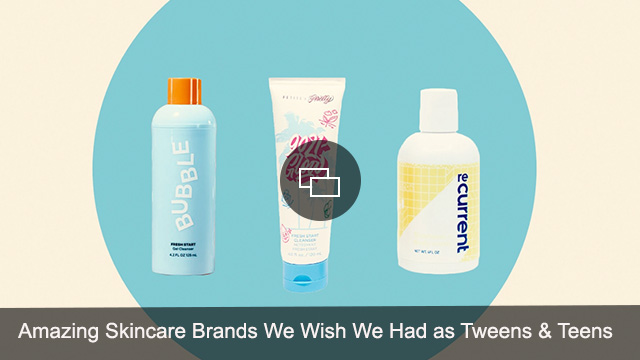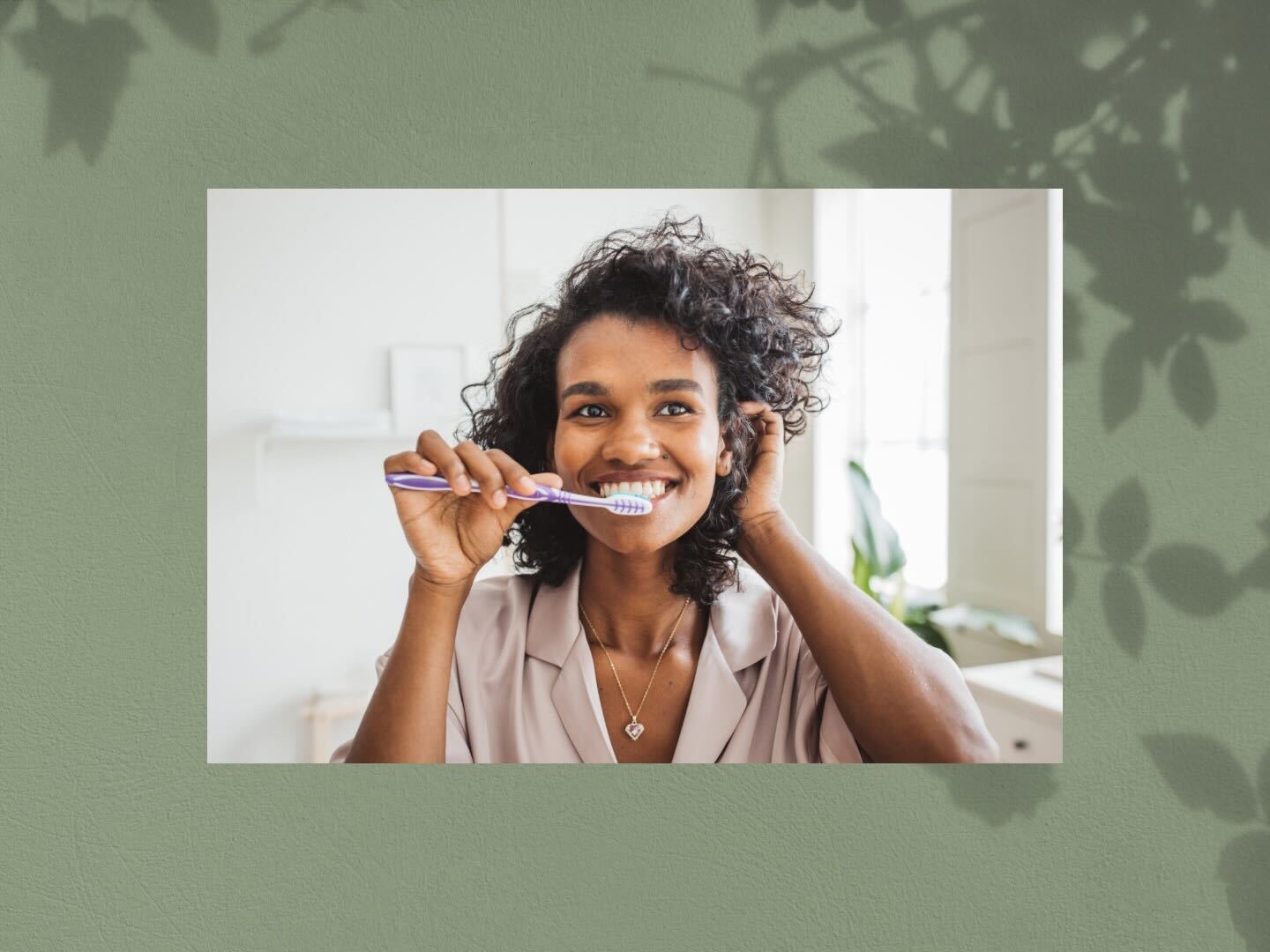It all started with a TikTok, like many of my wellness-trend questions do these days. Specifically, this was a TikTok from a dental hygienist, @krystaambruson, who shared her morning oral hygiene routine and ended with a surprising (for me) instruction: do not rinse your mouth after brushing your teeth. The reasoning makes sense — you don’t want to wash the fluoride off your teeth, Ambruson explains (more on that later) — but the thought of leaving my toothpaste residue to just sit in my mouth for the rest of the morning was, well, slightly gross.
It’s also strange to think that — if TikTok is to be believed — the common habit of rinsing after brushing your teeth isn’t actually a best practice for oral hygiene. I don’t know anyone that doesn’t rinse after brushing. Isn’t that why hotels have cups in the bathroom? What other lies have we been told?!
Clearly I needed answers, and I wanted to go beyond TikTok to get them. I asked three dentists whether we really should be rinsing after we brush (or floss, for that matter) and, while we were at it, what other changes we should make to our dental hygiene routines. Turns out, TikTok might be on to something with this one, so let’s talk about why.
Should you rinse after brushing your teeth?
You shouldn’t rinse with water right after brushing your teeth, dentists say. Why? “Toothpaste contains fluoride, which helps remineralize and strengthen the tooth‘s enamel,” cosmetic dentist Dr. Catrise Austin of VIP Smiles tells SheKnows. “If you’re rinsing immediately after brushing, you risk washing away the fluoride before it has a chance to fully protect your teeth.”
Still, it’s understandable why rinsing after brushing is so common. “It feels good in the mouth and helps to get rid of any toothpaste residue that may not taste the best,” Dr. Shahrooz Yazdani, dentist and director of Yazdani Family Dentistry Kanata, tells SheKnows. But if you want to get the most bang for your buck when it comes to your oral hygiene routine, it’s best to skip this step.
Instead, simply spit out any excess saliva or toothpaste after brushing and leave the trace residue behind on your teeth, Dr. Jennifer Silver, dentist and owner at Macleod Trail Dental, tells SheKnows. Avoid eating or drinking for at least 10 minutes after brushing “to allow the fluoride to work its magic,” she adds.
While it’s best not to rinse at all after brushing, if you really don’t want to skip that step, “use a small amount of water and avoid swishing vigorously,” Austin says. And if you have a fluoride rinse you like to use after brushing, Yazdani recommends brushing, rinsing with a bit of water, then following up with the fluoride rinse.
Quick personal tangent: since seeing that TikTok, I decided to stop rinsing after brushing my teeth. At first, I didn’t love the half-chalky, half-slimy residue the toothpaste left behind. It was also surprisingly hard to break the habit of rinsing, something I’ve done my whole life, and a few times, I would slurp down a mouthful of water before I realized what I was doing. (This was especially common in the morning, when I was half asleep.)
But as I got used to it, the toothpaste aftertaste started bothering me less and less, and it felt more normal to spit without rinsing. Now it barely fazes me and I’ve made it a consistent part of my routine.
Should you rinse after flossing?
The time to rinse, it turns out, is actually after flossing. The idea is that rinsing after your floss “can help remove any loosened food particles and bacterial plaque from between your teeth,” Austin explains, so make a point to swish around some water and spit after you toss out your floss. Speaking of…
Should you floss before or after brushing?
While we’re talking about brushing and flossing, let’s answer this age-old question too. “It’s generally recommended to floss before brushing,” Austin says. That’s because flossing cleans the space between your tooth and your gum, so that when you do go in and brush, “this allows the fluoride from the toothpaste to reach between your teeth more effectively,” Austin says. You’re basically maximizing your “protection against cavities that form in hidden areas like between the teeth and below the gums,” she explains.
The ideal order? Floss, rinse with water, brush with fluoride toothpaste, and end with a fluoride rinse if you use one, Yazdani says. If you prefer an alcohol-based mouthwash, “use this after flossing but before brushing,” he says, “as alcohol can also remove the fluoride.”
In short: it’s best to floss before brushing and skip rinsing after brushing, but if you really prefer to rinse (or just have a hard time remembering not to), don’t stress. “If you have a habit of rinsing with water, it really is not the worst thing for your dental hygiene,” Yazdani says. The most important thing, he says, is brushing and flossing twice a day. Once you’ve got that healthy habit down, finessing your routine can help you get the absolute most out of it. (Your teeth will thank you.)
Before you go, shop our favorite skincare products for teens:




Leave a Comment